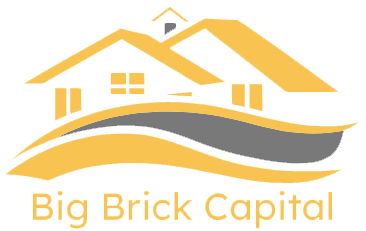A growing number of investors are taking an interest in multifamily properties, resulting in growing demand. However, multifamily deal analysis is a complicated process and many investors are unsure how to do it.
If you want to make an offer on a deal, how do you quickly assess whether it’s worth it, and how do you decide how much to bid?
By being able to run numbers and evaluate businesses for cash flow and added value, you can assist other investors who might not have time or interest in the same task.
In this blog, you will learn about the 4 steps you must not ignore when looking for a winning property.
Estimating Cap Rate
Before we begin, let’s explain what a Cap rate is. An expected rate of return based on the income in real estate is called the Capitalization Rate or simply the Cap rate. Capitalization Rates can aid in deciding which properties to buy or invest in.
Cap rates are inversely correlated with market value. Whenever Cap rates decline, the value of a property rises and vice versa. The drop in Cap rates is great for property owners, but the opposite occurs when you invest.
Cap Rate = NOI / Value
Time to do some calculations
1. Find the NOI
When you determine the net operating income of your property after you’ve handled the day-to-day financial obligations, you are leveling the playing field for everybody. The broker may provide you with numbers for preliminary screening, but it is best to request and then research the numbers yourself. Once you have the numbers, you can calculate them using the following formula.
NOI = Total Income –Total Operating Expense
2. Determine the Cashflow
Cash flow, on the other hand, is different for each investor. Besides considering your mortgage terms, you should also consider your tendency to plan for future capital expenditures (CapEx). These are the profits you actually receive.
Cash Flow = NOI – (Mortgage Payment + Reserves for CapEx)
Your ability to save for big expenses is determined by the amount you assign to CapEx reserves. If necessary, consider the need for high-end items and how soon you will have to replace them.
Will your cash flow allow you to replace them soon? Investors say the goal is cash flow that gives cash-on-cash returns of at least double digits.
Cash on Cash Return = Cash Flow / Cash Invested x 100
3. Look for opportunities to raise the value
Multifamily properties have a greater value based on their financial operations than residential homes.
Value = NOI / Capitalization Rate
In a given area and for a specific property class, the capitalization rate measures how much the market is willing to pay for specific returns.
You can determine the change in the value of a property, based on a change in NOI, once you know the going cap rate in the area. You should aim for an increased NOI.
The next question is, how can you raise NOI?
You can raise the NOI either by increasing the income or by decreasing the expenses.
As you analyze the deal, look for ways to improve it. Research your competition and determine whether upgrades would be required to increase rental rates. Be sure to factor in rehabilitation costs when you estimate your purchase price.
4. Calculate the price of your purchase
Using the current NOI and cap rate of the property, pick the appropriate purchase price. Be careful not to overpay for unvalued assets.
Use the following formula for calculating the purchase price.
Purchase price = NOI / CAP rate
Here, the asking price is not taken into account. Just go by the math. Calculate your maximum offer. Then, make your offer. Now, start negotiating.
Be sure to perform your due diligence
Getting quick analyses when you’re looking at hundreds of deals can save you a fantastic deal of time. Do your due diligence before investing in any multifamily property. This includes requesting bank statements, rent rolls, and unit inspections, among others. Your assumptions and numbers will either be confirmed or won’t be confirmed with the documentation and hard facts.



